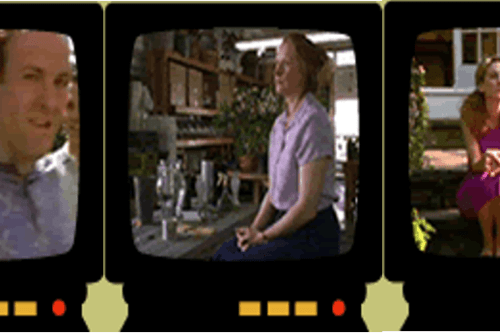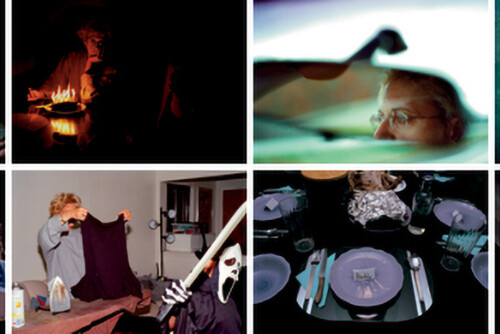The Sopranos‘ view of masculinity is clearly informed by the poststructuralist feminist definition as the almost-but-not-quite, an ideal that seems attainable yet is always out of reach. Like a ghost, masculinity is a persistent recurrence in one’s consciousness that mediates past and present, characterized by Judith Kegan Gardiner as “a nostalgic formation, always missing, lost, or about to be lost, its ideal form located in a past that advances with each generation in order to recede just beyond its grasp” (Gardiner 10). From the outset of the series, Tony expresses a sense of loss, telling Jennifer during their first session, “I came in at the end. The best is over,” and later specifically relates this malaise to masculinity:
What ever happened to Gary Cooper? The strong, silent type. That was an American. He wasn’t in touch with his feelings, he just did what he had to do. See, what they didn’t know, was once they got Gary Cooper in touch with his feelings, they’d never shut him up. And then it’d be dysfunction this, and dysfunction that, and dysfunction ah va fungool (“The Sopranos,” episode 1).
Tony’s rant reveals much about his conceptions of masculinity: He reveres the stoic, autonomous, and assuredly heterosexual male ideal embodied by Gary Cooper, and associates the disappearance of the masculine ideal with a decline in national values (“That was an American”), replaced instead by a culture that fetishizes victimhood and implicitly has become more feminized.1
Yet at the same time he expresses these beliefs, he also intuits the distance between these masculine ideals and the real: When Tony evokes Cooper he is referring to the actor’s performances of fictional characters, the most famous being Will Kane from the 1952 film High Noon. (Kane, by the way, appears in Tony’s dream in season 5’s “The Test Dream,” in which Tony’s high school coach tells him that he has not lived up to his potential.) For Tony to cite Cooper/Kane as an identificatory model, he has to repress or ignore the rather glaring differences between them. In High Noon, Kane is a man of the law, a former marshal willing to act alone; Tony, of course, is a captain in the mob (though he sometimes refers to himself as a “captain of industry”) who suffers panic attacks. Furthermore, Tony admits that even Cooper’s film persona as the “strong, silent type” paid a psychic price as such, insofar as he had to almost pathologically suppress himself (“they’d never shut him up”) in order to do “what he had to do.” In the end, however, Tony cannot come to grips with his intuition—the demands of his profession and his own personal desires require, in fact, that he does not—so rather than acknowledge the gap between his ideal and reality, he becomes angry and inarticulately ends his rant with an obscenity, thus temporarily putting an end to his increasing anxiety.2
- Bernie Heidkamp presents an extended discussion of the “crisis of masculinity” as a post–World War II phenomenon in his discussion of The Sopranos, “Just When Men Thought They Were Out . . . “
http://www.poppolitics.com/articles/2000-07-13-bigmen.shtml. [↩] - While Cooper/Kane is Tony’s personal ideal, his other identificatory model is the Rat Pack, a group that exemplifies how masculinity becomes reinforced through homosocial bonding. While Tony and his peers ostensibly have more in common with Frank, Sammy, and Dean, this model ultimately proves as alienating as Cooper/Kane, as depicted in “The Rat Pack” (episode 54). The title’s dual meaning alludes to the Rat Pack portrait that Tony is given by colleague Tony Massarone, who is also an FBI informant, and thus signifies the distance between the ideal incarnated by the original Rat Pack and the current mob, which is corrupted by disloyalty. Also, Soprano invests his desire to maintain homosocial bonds in his cousin, Tony Blundetto, who is released from prison in the episode. But Blundetto tells Soprano that he has ambitions of becoming a massage therapist instead, thwarting Soprano’s plans. At the end of the episode, Soprano throws away the painting. [↩]




